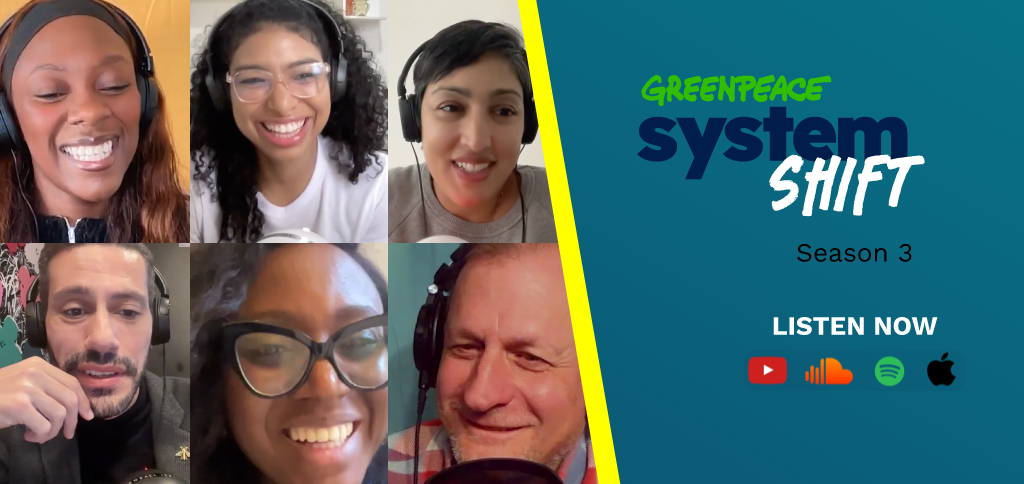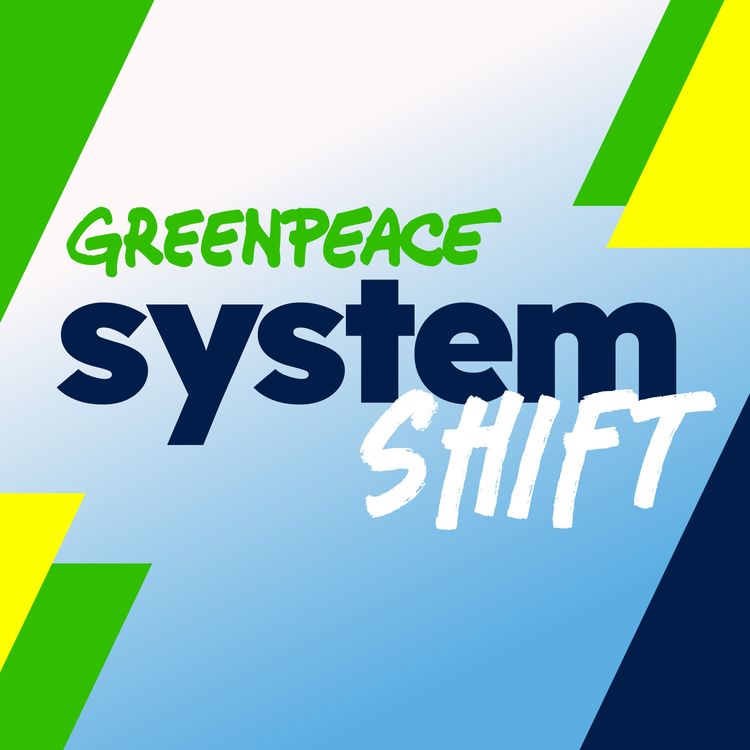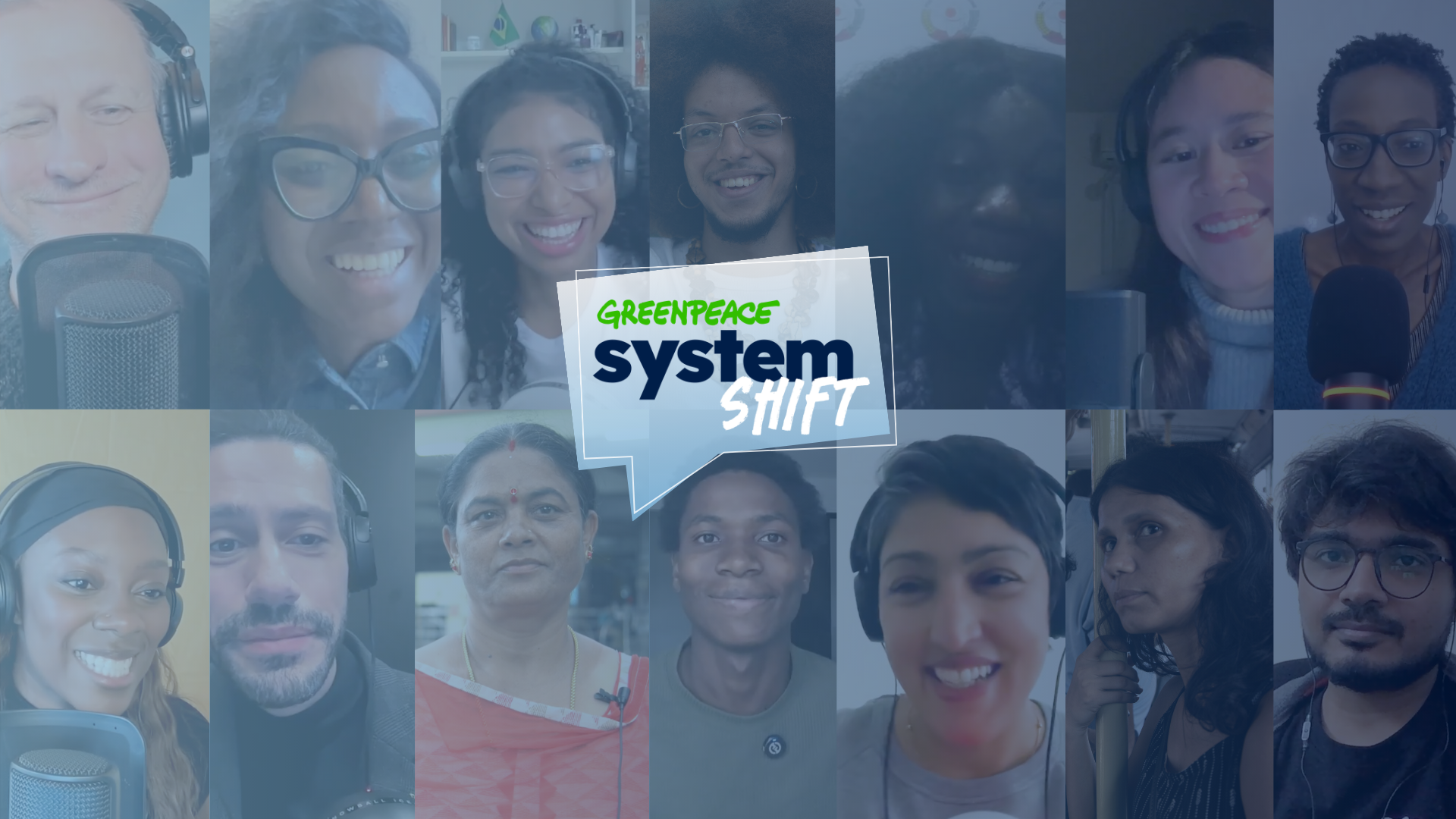SystemShift
Season 3 is here! Watch and Listen now.

Today, people have to deal with their basic end-of-the-month needs, while facing the end of the world in the form of extreme social inequality and climate chaos. We recognise that only environmental solutions that connect with people’s everyday concerns and beliefs will realise our vision for a green and peaceful planet.
SystemShift helps us explore how to move from a world that serves the economy to an economy that works for people and the planet.
SystemShift podcast looks for answers and stories of justice, solutions, and alternatives, collaboratively showing how other ways are possible, through a decolonising, intersectional and hopeful point of view.
Season three of this podcast series will explore how we move from a world that serves the economy to an economy that works for people and the planet. The theme of this season is change, and each episode we speak to guests across the world to hear how they’re changing the planet for the better.
Listen to SystemShift on Apple Podcasts, Soundcloud, Spotify, YouTube, or wherever you get your podcasts.
-

Transcript: How can I think about the planet when I can’t even afford rent?
Viewing environmental concerns through the lens of social and economic justice can reveal powerful connections between your struggles and the health of our planet.
-

Transcript: Buses are free for women in Delhi: what can the world learn from that?
Better public transport could reshape cities by reducing traffic, cutting pollution, improving access to jobs, culture, education and essential services, especially for marginalised communities.
-

Transcript: How could Islamic principles boost climate action?
How faith and climate action are aligned, and why it’s important to integrate people’s faith into fighting climate change, under the umbrella of Islamic Finance.
-

Transcript: Does the colour of your skin make you more vulnerable to climate change?
How systemic inequalities contribute to climate vulnerability, and why marginalised and systemically oppressed communities must be at the centre of climate adaptation plans, policies and action.
-

Transcript: How could climate change reshape jobs and workspaces?
How a shift to renewable energies and sustainable, equitable transition and transformation, creates decent jobs by addressing both environmental and social challenges.
-

Transcript: AI is changing elections: How can we protect democracy?
Can AI make democracy “better” or does it risk undermining its core principles.
-

Transcript: Are urban communities a remedy for loneliness?
Imagine the feeling of being disconnected, even when you are surrounded by others.
-

Transcript: Would the world change if we taxed the super-rich?
This week we talked with Chenai Mukumba, Executive Director of the Tax Justice Network Africa.



